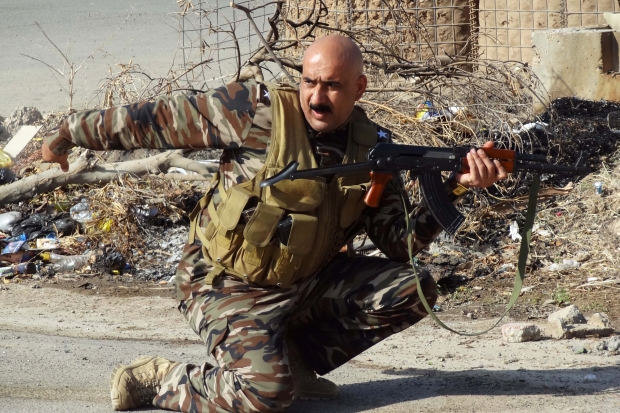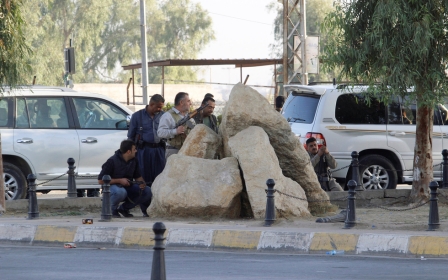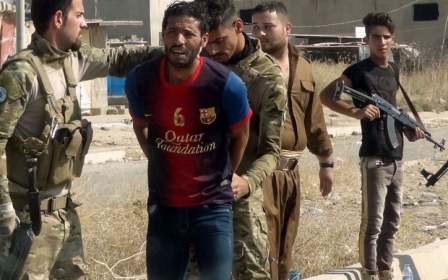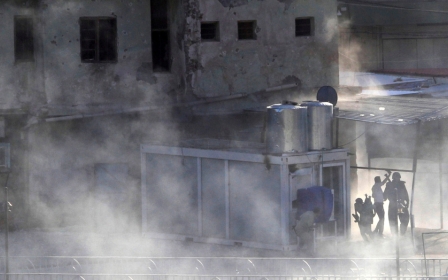'I did it for money': Islamic State cell leader tells of attack on Kirkuk
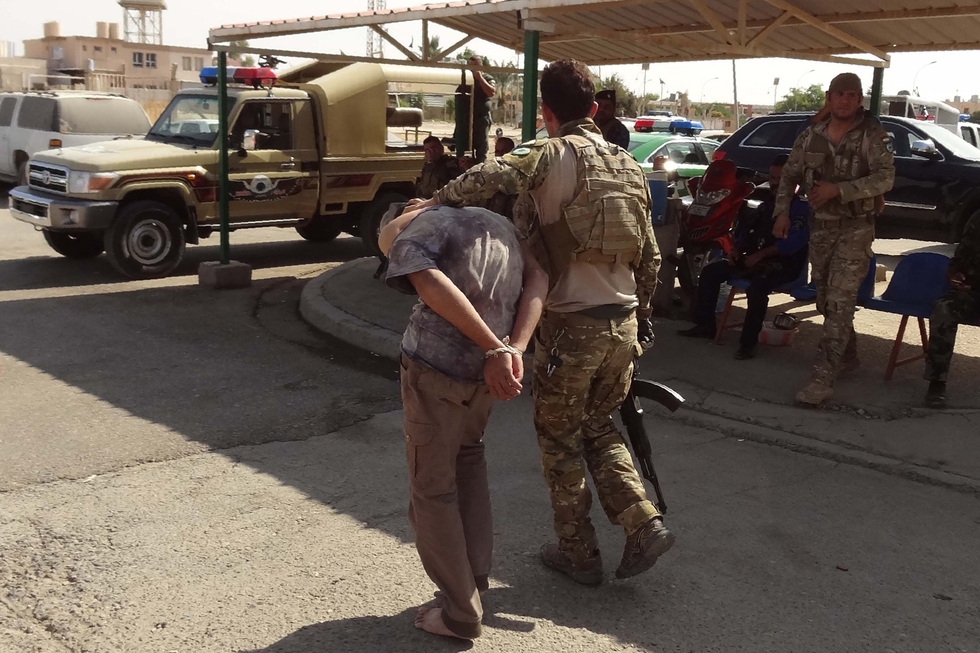
KIRKUK, Iraq - Addi Abbas Sabhan's hands are tied as he is dragged through a corridor by two Peshmerga guards who push him into a cell and jerk his head around to face the wall.
There is nothing to suggest this 24-year-old is dangerous: his demeanour is subdued, his face clean-shaven and boyish. But Sabhan is a confessed recruiter for the Islamic State (IS) group who helped plan and execute a devastating suicide attack on the city of Kirkuk last month that left 80 people dead and a population terrified.
His motivations were simple. Counter to the group's pride in its fanaticism and religious fervour, Sabhan wanted money. Poverty, mixed with a sense of injustice borne from American occupation and sectarian divisions, delivered this former bricklayer from Hawija, just under 50km from Kirkuk, into the group's arms.
'I earned $30 a month, when times were good. IS promised $150 a month. I did it for the money, not for the faith'
- Addi Abbas Sabhan
"I was not recruited in a mosque, IS approached guys in the streets," he told Middle East Eye under the watchful eyes of his jailers. "I earned $30 a month when times were good. IS promised $150 a month. When I pledged allegiance, I did it for the money, not for the faith.
"I was recruited at the beginning of 2014, a few months before IS took Mosul, by men of the emir, Abu Islam al-Iraqi," he said. "They said they would defend our families and guarantee them a life of dignity. I had to help my mother to feed my four brothers.
"I did not have a childhood. I could not study because my family had no money. People hated the Americans and they hated the government," he says. "I felt abandoned, we all felt abandoned."
Sabhan said his recruiters fomented these frustrations among his community, and within months they began to speak of sacrifice in the name of jihad, of the need to kill the infidels - and false Muslims - in the name of holy war.
"They wanted to teach us about martyrdom. They said: 'Kill for us and you are rewarded paradise.' We were all very young; it is easier to persuade [youths] to sacrifice their lives for an idea."
To that end, Sabhan was told by his handlers to help recruit sleeper cells in Kirkuk and to prepare for their mission. The start of the Iraqi offensive on the IS stronghold of Mosul, 100km to the southeast, gave them their opportunity.
"We planned it in detail," he said. "We were a hundred, all from Hawija, and 20 of us were wearing explosive belts. We divided into groups once in the city, more or less 20 people each, and each group had to attack a building."
On the night of 21 October, the group struck. Sabhan was among more than 100 fighters armed with machine guns, rocket-propelled grenades and explosive belts who attacked two hotels, a mosque, schools, a military barracks and the prison where he is now lodged, hands tied and repentant.
A show of strength
IS could never gain control of a city with only 100 men, but the assault showed how dangerous the group remains, according to Sarhad Qadir, a general and the chief of Kirkuk police.
'The truth is that an attack like October's demonstrates that the IS consensus is deeper than we imagine'
- Sarhad Qadir, chief of Kirkuk police
"It was a demonstration of strength. It was their way of claiming presence in the country," he said. "They knew it would be a losing attack, they knew they would lose dozens of men, but a few days after the start of military operations on Mosul, they wanted to demonstrate their ability.
"The truth is that an attack like October's demonstrates that the IS consensus is deeper than we imagined. Among them there are young unemployed, of course, but the heads of these cells are well-trained and highly educated men.
"Not only that, there are people linked to the old regime. Just a few days ago we captured Nazar Hammoud Ghany, a cousin of Saddam Hussein, who participated in the attack and admitted to being an IS affiliate."
READ: As Islamic State rejoices over Trump, Obama must strike back while he still can
Qadir adds that the group must have had help from inside the city. "It's clear that a commando team of 130 people moving to a city like this have at least certain support, albeit partial, of people inside Kirkuk. Some prisoners confessed that IS got in after civilians bribed policemen at checkpoints."
He also criticised a lot of the strategy behind the Mosul offensive. “The offensive would be more effective starting to fight IS pockets in other parts of the country," he said, and pointed to Sabhan's home town of Hawija, still under the thrall of IS.
The Kirkuk attackers came from Hawija, including the "emir" Abu Islam al-Iraqi, who was arrested on 24 October along with nine other militants.
According to Iraqi intelligence, IS has at least 1,500 fighters in the city and surrounding villages.
'It would not be surprising if the Kirkuk attack was a template for a IS counter-offensive, as it shows it has a network of sleeper cells and can survive without a capital'
- Sarhad Qadir, chief of Kirkuk police
"Now the risk is that IS will send its militia to other parts of Iraq, creating confusion and fear among people," Qadir said. "All these attacks worry us. It is true that the media attention has focused on Mosul, but it is equally true that in Iraq there are many small strongholds of IS.
"Sleeper cells are the pitfalls of tomorrow. It would not be surprising if the Kirkuk attack was a template for an IS counter-offensive, as it shows it has a network of sleeper cells and can survive without a capital."
The attack also had the effect of sowing sectarian tensions in the area. Amnesty International last week accused Kurdish authorities of pursuing hundreds of Sunni Arabs and destroying their homes in retaliation.
'I have killed but I repent'
All IS militants captured after the Kirkuk attack now face the death penalty. Sabhan says he would never have managed to blow himself up, and that he wanted to run away and abandon IS, but he was afraid of retaliation.
"I repent," he said several times during the interview. "I have killed, but I repent." When asked if he was afraid of what may happen next, he said: "Of course. Everyone is afraid of dying."
A final word comes from the Kurdish officers: militants like Sabhan are experienced, dangerous and highly trained killers who spin tales of woe when caught.
“When we arrest them," Qadir told MEE, "they want to portray themselves as repentant and manipulated. They are nothing of the sort."
This article is available in French on Middle East Eye French edition.
Middle East Eye propose une couverture et une analyse indépendantes et incomparables du Moyen-Orient, de l’Afrique du Nord et d’autres régions du monde. Pour en savoir plus sur la reprise de ce contenu et les frais qui s’appliquent, veuillez remplir ce formulaire [en anglais]. Pour en savoir plus sur MEE, cliquez ici [en anglais].


